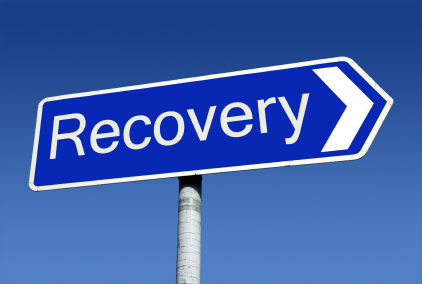Community life competence
Connecting local responses around the world
Connect with us
Website: the-constellation.org
Newsletter English, French Spanish
Facebook https://www.facebook.com/pages/The-Constellation/457271687691239
Twitter @TheConstellati1
Instagram: https://www.instagram.com/constellationclcp/
Does international aid need a 12-step program?
“Let go and let God.” It’s a mantra of Alcoholics Anonymous. And after the last week or so, I’m wondering if it’s time for international aid to adopt the same approach to recovery (with more politically correct secular references of course).
Last week I attended the “Summit for Aid Effectiveness in Global Health: Making Country Leade...,” hosted by MIDEGO. Then earlier this week is was the InterAction Forum 2012, “Engage * Learn * Build,” and ending up yesterday at the Chesapeake Bay Organization Development Network Annual Meeting, “Shifting Organizations from Reactive to Resilient.” (You can check out my Storify-ed tweets from the events here, here, and here respectively.)
But it was the framing questions for MIDEGO’s event that helped to shape my mindset over these three meetings:
- What does country leadership mean to your work in development?
- Are you ready to let go and let countries lead?
- How will we know that US dollars are being used effectively if we let countries lead programs?
- How do we let go?
With MIDEGO’s questions in mind all week, I’ve listened to old school “experts” in suits. I’ve listened to “local champions” via Skype from the developing world. I’ve listened to people who identify themselves squarely as supporters of local activists and leaders. And in each of their presentations and in the pursuant discussions, I’ve been listening for answers to these questions for insight into how the shifts needed to make aid more locally responsive can occur.
My conclusion? The international aid industry (and the people that make it up) might need a 12-step program to overcome what ails the system in order to meet the challenges of the 21st century.
So I offer these 12 steps, reworked for us aid workers, philanthropists, social entrepreneurs and volunteers, written as if we had successfully gone through the program and come out the other side—stronger and more devoted to our purpose.
Step 1: We admitted we were powerless over a project-based mentality--that when we considered the changing world, our frameworks and tools as they had come to define us had become obsolete.
Step 2: We came to believe that notions of complexity and resilience, as powers greater than ourselves, could help guide us towards more adaptive programming.
Step 3: We made a decision to turn our will and our roles over to this reality and to the adaptability of natural systems.
Step 4: We made a searching and fearless inventory of our character as do-gooders and of the limitations of our internal systems in relation to the people we aim to serve.
Step 5: We admitted to ourselves, our organizations and to our partners (implementing and funding) the exact nature of our faults and misdeeds.
Step 6: We were entirely ready to practice responsive mechanisms of support (funding and accompaniment) in order to remove our defects of character.
Step 7: We humbly used the feedback from our partners in the removal of our shortcomings and resolved to work to remove these faults by utilizing robust feedback mechanisms.
Step 8: We made a list of all persons we harmed, and became willing to make amends to them all.
Step 9: We made direct amends to such people whenever possible, except when to do so would injure them or others.
Step 10: We continued to take personal inventory and when we were wrong, promptly admitted it.
Step 11: We listened, studied, and meditated to improve our awareness of the natural laws and forces that govern the real and valued contributions of changemakers at all levels, focusing only on accountability to the people we serve and the strength to follow that pursuit above all else.
Step 12: Having had a spiritual awakening as the result of these steps, we tried to carry this message to others and to practice these principles in all our affairs.
Many people and international assistance efforts have started down this path.
Folks, if you haven’t yet embarked on your recovery, what are you waiting for?
***
This post originally appeared at: http://www.how-matters.org/2012/05/05/aid-12-step-program/
***
Related Posts
The elephant hasn’t left the room: Racism, power & internationa...
© 2026 Created by Rituu B. Nanda.
Powered by
![]()


You need to be a member of Community life competence to add comments!
Join Community life competence